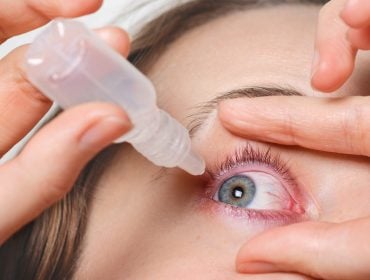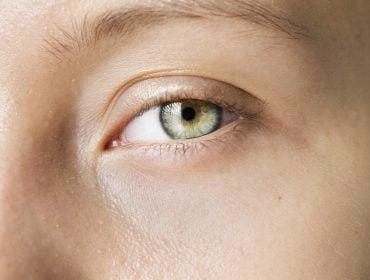STDCheck Explains: Understanding Ocular Herpes – Risks and Prevention Tips
You might wonder if you can get herpes in your eye. Indeed, ocular herpes is a real condition that affects the cornea’s top part and may progress to deeper layers, leading to serious issues like vision loss or even blindness. Stromal keratitis is a key culprit for poor outcomes in the US. It is important to know about prevention and treatment options, like antiviral medications, and which treatments to avoid.
Understanding Ocular Herpes
Ocular herpes hits your eye, often just the top part of the clear cover called cornea. It can mend without leaving a mark. But if it digs deeper, you might get scars and maybe lose sight or go blind.
This isn’t common but leads to blindness in our country due to scarred corneas more than anything else does. The inside tissues can swell up too, this hurts a lot, makes lights feel harsher, blurs what you see, and turns eyes red. The right treatment depends on where exactly this nasty bug settles in your eye: surface layer or deep down, or even targeting iris area?
Eye drops with anti-virus agents work within weeks. Sometimes, pills also help for a maximum of three weeks, aiming for quick symptom relief.
“Bad cases require stringent care. Steroids and virus control are key.”
No full cure exists yet for eye herpes though we’re always hunting new ways to keep it at bay better. Can’t forget, you can catch herpes in your peepers too so watch out!
Eye Herpes Transmission Risks
Eye herpes, often mistaken for less serious conditions like pink eye, poses real risks. If your eyes hurt more than they should or you’re sensitive to light, it might be HSV, herpes simplex virus. Far from just a skin issue, this virus can invade the layers of your eye causing problems ranging from eyelid inflammation to deeper troubles like keratitis and even damaging pressure build-up within the eye.
Each year in the U.S., there are around 50,000 cases of ocular herpes diagnosed with varying severity. Sadly, misdiagnosis is common because its symptoms mimic other issues – leading to incorrect treatments. Watch out if pain doesn’t match up with signs or history points towards herpes; these clues could signal an infection lurking beyond what’s visible on the surface.
Doctors use clever tricks to test sensation in suspect areas since diminished feeling hints at viral presence too subtle for standard tests like cultures that work well when lesions clearly show active infections but not so much otherwise.
Recognizing Symptoms of Ocular Herpes
Watch for specific signs if you worry about ocular herpes. You may notice your eye turning red, or experience pain along with more tears than usual. Light might bother you more as well.
Some people get headaches and feel like there’s grit in their eyes. In severe cases, a sore or rash could form on the eyelid; that often hurts too. Vision might blur when pain strikes alongside this reddening of the eye.
These symptoms can point to HSV1 stirring within you — typically after laying dormant since an early age without showing itself through prior discomforts such as mouth cold sores.
Diagnosing Eye-Related Herpes Infections
If your eye troubles you and it’s more than just dryness or a stray lash, think about herpes. This virus can hit the eyes too. Not common but true.
Doctors use tests like PCR to find out if that’s what bothers you. It’s real fast and spot-on for spotting the bug when it flares up on the front part of your inner eye cover or causes swelling inside at the back. They may also peek closer with tools like confocal microscopy to see tiny changes in nerves or cells due to inflammation from treatment.
For deeper layers where immune responses rule, diagnosis is by looking close and trying meds till they work right. For sure signs of this kind of issue: pinpointing viral bits in tears might help tell if deep tissue suffers silently without an ulcer surfacing yet. With these ways today, we get better at knowing if herpes hits home in our sight organs, no small matter since lasting harm here deeply affects life quality.
Treatment Options for Ocular Herpes
When you have ocular herpes, your treatment plan works to ease symptoms and control the virus. Antiviral drugs like acyclovir are often used, these help stop the virus from multiplying. Your doctor might give these as eye drops, pills or both together.
Some cases need a more aggressive approach; if there’s damage to your cornea, for example with scarring or swelling (neovascularization), surgery could be on the table. With reactivation a possibility in this lifelong battle against HSV-1 infection, consistent follow-up is key. New strategies keep emerging too, the goal always being clear vision and healthy eyes without repeat flare-ups of herpetic outbreaks.
Prevention Strategies and Tips
You can cut your chance of getting eye herpes. Wash hands often to keep viruses away. Don’t share cups, forks, or makeup; they spread oral herpes quick.
If you see sores or blisters on someone’s mouth, stay clear, no close contact helps stop the virus that leads to eye issues. If you catch it in spite of care, drugs like Acyclovir and Valacyclovir help treat symptoms fast. Topical ointments ease swelling and sore eyes too.
Always follow your doctor’s advice for taking meds right, their plan eases pain and speeds up healing without bad side effects. Sometimes though, if hurt is deep in the eye, a fix might be surgery by a specialist doc.
Living with Eye-Specific herpes
Living with eye-specific herpes means you face a unique challenge. Eye infections from HSV can lead to serious visual problems. The virus, caught in youth or teen years, hides quietly in your nerves and may wake up later due to stress or illness.
Initial signs are often missed; however, sore eyes and blurred vision might clue you in on something wrong, possibly superficial keratitis or a dendritic ulcer noted by its branching shape stained during an exam. Recurrent flare-ups affect parts of the eye differently. They can cause inflamed cornea layers (keratitis), iris damage (uveitis), and retinal issues, which risk sudden blindness if not promptly managed with antiviral meds that must be used carefully to prevent further harm.
STDCheck wants you to stay informed about ocular herpes. This eye condition, often linked to the common herpes virus, can cause severe harm if left unchecked. Shield yourself by practicing safe hygiene and avoiding contact with infected areas.
Regular testing for STDs is a smart move too – it helps catch symptoms early on. Remember, your eyes are precious; protect them with knowledge and cautionary steps provided by experts at STDCheck.com where discreet services empower you in health care decisions.
Medically Reviewed by Colleen Ryan, MD on April 19, 2024
Secure and Confidential
STD testing services
The fastest results possbile - available in 1 to 2 days

Tagged
Categorized As
Author: STD Check Editorial Team
At STDCheck.com, we go to great lengths to ensure quality content. We’re using our own collection of data. It is not bought or made up for “click-bait” purposes. We don’t entice traffic with cheesy graphics or raunchy headlines. Our information is to promote STD testing, educate people, let go of social stigmas, and bring awareness. We also provide a completely confidential atmosphere through private testing. When we produce an article, it is fact-based. We check it with medical advisors that approve it. Our staff consists of doctors and other medical professionals who peer review the content we make available on STDCheck.com. From all over the world, we have sourced the best and the brightest content developers, including medical professionals, marketing engineers, data scientists, content specialists, and media relations.




